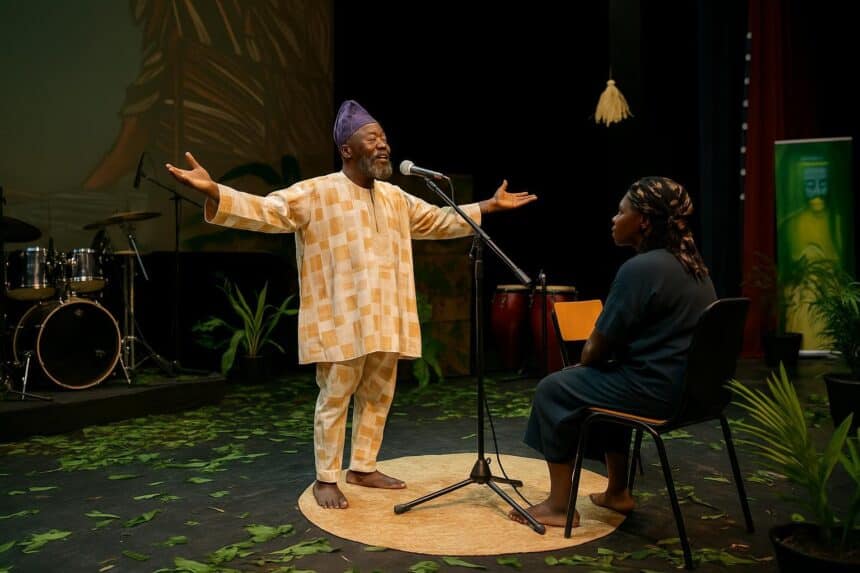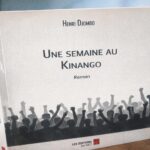Record Global Entries in Five Days
Only five days after the application window opened on 27 August, the International Urban Poetry Festival Slamouv logged 105 files from every continent, smashing its own internal forecasts. The deluge of uploads forced organisers to extend server capacity overnight, a tangible sign of the event’s growing magnetism.
Festival founder and internationally touring slammer Mariusca Moukengue smiled in a live video, admitting that “the selection team will eat, sleep, and breathe poetry for weeks.” Her playful remark underscores both excitement and the responsibility to uphold the festival’s reputation earned since its launch in 2022.
Theme ‘Slam to Live’ Sets the Tone
The fifth edition, slated for April 2026 in Brazzaville, adopts the rallying theme “Slam to Live!” The slogan is more than a catchy phrase; it affirms the spoken word as a lifeline, a tool for oxygenating ideas, sharing emotions, and resisting social invisibility worldwide.
Programmer Clarisse Mabika explains that the motif emerged during workshops with teenage poets who described slam as “an open window when the classroom walls close in.” Their feedback convinced curators to craft a program emphasising mental health, inclusion, and audience interaction through verse.
Selection Process Puts Quality First
Despite the buzz, acceptance is far from automatic. Applicants must send a concise artistic biography, a project dossier, two high-quality performance videos, photos, and full contacts before 1 November. Multilingual pieces are welcome because, as the artistic director stresses, “speech travels faster than passports.”
A five-person international jury, soon to be unveiled, will score creativity, stage presence, and capacity to engage local audiences. Internal guidelines also reserve slots for at least three emerging Congolese talents, ensuring the host city’s voices resonate alongside established global names.
Brazzaville, Rising Hub of Spoken Word
Brazzaville’s riverfront venues, from the verdant French Cultural Centre garden to the renovated Palace of Parliament steps, will again become open-air stages. City authorities confirmed logistical backing, citing the festival’s role in promoting creative tourism and boosting small businesses such as guesthouses and snack sellers.
Economist Jean-Paul Nkoua estimates that visitor spending during the 2024 edition injected nearly 120 million CFA francs into the local circuit, a figure municipal officials hope to surpass. “Culture is an economic lever that does not exhaust our soil,” he told journalists with measured pride.
Beyond numbers, the capital’s reputation for hospitality and security has reassured many first-time applicants from Asia and South America. Several cited the Congo’s UNESCO City of Music label obtained in 2021 as a decisive factor when choosing which festival to prioritise in their touring calendars.
Local hotels are already posting promotional rates for April 2026, and the Ministry of Culture hinted at the launch of a “slam pass” combining discounted accommodation, transport, and museum entry. Details remain under wraps, yet the prospect reinforces confidence among organisers and prospective guests.
Timeline, Resources and Support
Meanwhile, the Slamourail association continues outreach in schools and community centres, using mini-slams to guide youths in preparing their own candidacies. For many teenagers from Makelekele to Talangaï districts, performing on the festival’s professional stage feels like a dream suddenly within arm’s reach.
Last year’s youth laureate, 17-year-old Lauriane Bita, says she found her voice after hearing Kenyan star Sage recite by the Congo River. “Slamouv is where I learned that my accent is music,” she reflects, now volunteering in the technical team to give back.
The 2026 program will mix evening marathons, afternoon masterclasses, and dawn river readings, a format praised for turning the city into a living poem. Lighting designers are exploring solar-powered installations to reduce the event’s carbon footprint without dimming its trademark nocturnal ambience.
In addition to live stages, organisers plan a daily one-minute video digest tailored for mobile users, aligning with the festival’s ambition to remain accessible to diaspora audiences with limited internet packages. Clips will highlight standout lines, backstage emotions, and snapshots of Brazzaville’s street life.
Partners and Audience Expectations
Corporate sponsors keen on youth and cultural engagement have until 15 December to negotiate visibility packages ranging from stage naming to green room branding. Gabon Telecom, a backer since 2023, hinted it might upgrade to livestream partner, potentially extending broadcasts to its regional fibre network.
Tour operators equally see opportunity. Congo River Cruises director Rolande Nsoni is designing themed excursions that end at evening slam battles. “We’re creating itineraries where tourists sail, taste local fish, then finish the night clapping to metaphors under the stars,” she explains enthusiastically.
Looking ahead, the committee envisions residencies linking Brazzaville poets with counterparts in Dakar, Antananarivo, and Paris, funded by cultural diplomacy grants. Such exchanges could spawn bilingual shows for future editions, solidifying Slamouv’s reputation as a crossroads rather than a stopover on the slam circuit.
For now, the message remains simple: submit, share, and prepare to breathe words into the humid April air of Congo’s capital. Whether you carry verses in Lingala, Spanish, or Arabic, Brazzaville is extending an open microphone. The beat starts, quite literally, with your email.





















